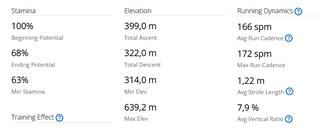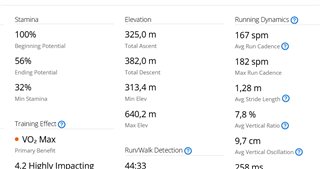EDIT:
Seems first example not informative, and second sentence nobody wanna read.
Here new one:

Total Ascent = Max Elevation - Start Elevation = 639-314 = 325 (Correct)
connect.garmin.com/.../11410494666
EDIT2:
Here is another example just opposite
https://connect.garmin.com/modern/activity/11511317392
Now garmin missed with desced. Same route, same start points, just random values



